I don’t know how to have a healthy conversation about veganism with my friends and family
Conversations about veganism can be challenging, and the ones we have with our closest friends and family can often be the hardest. When they don’t go the way we hoped, it can be a really upsetting and disconnecting experience. It’s natural to want the people we care about most to understand and support us.
The good news is that there are lots of things we can do to ensure our conversations about veganism with friends and family are healthier and more connecting. What follows is designed not to be an exhaustive set of tools but rather a starting point! At the end, you’ll find links to lots more resources on this topic.
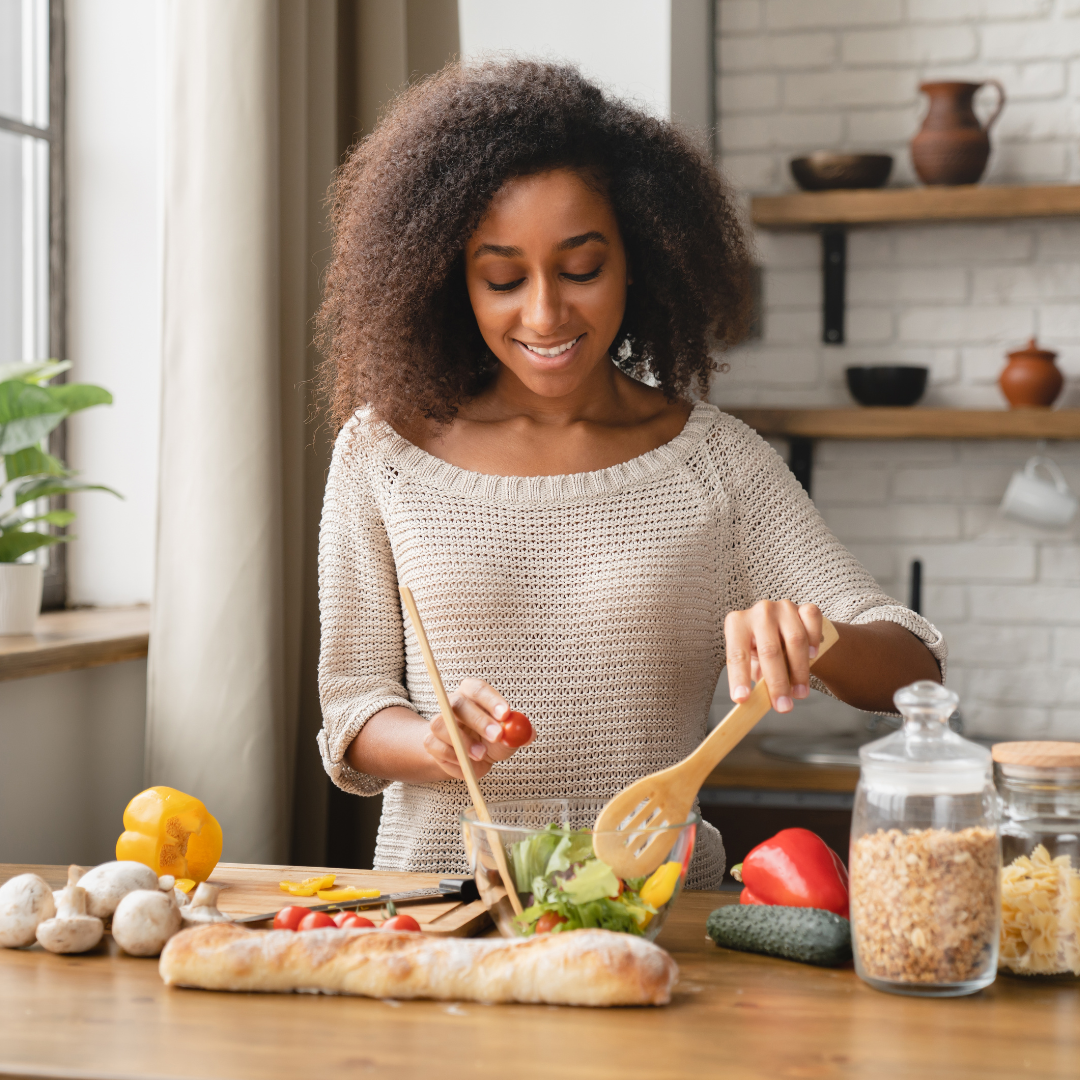
Share your own story
The first time you see friends and family after deciding to become vegan, they may well ask why you made this decision. How do you respond?
Many vegans respond by listing all of the facts they think will persuade their loved ones to become vegan, too:
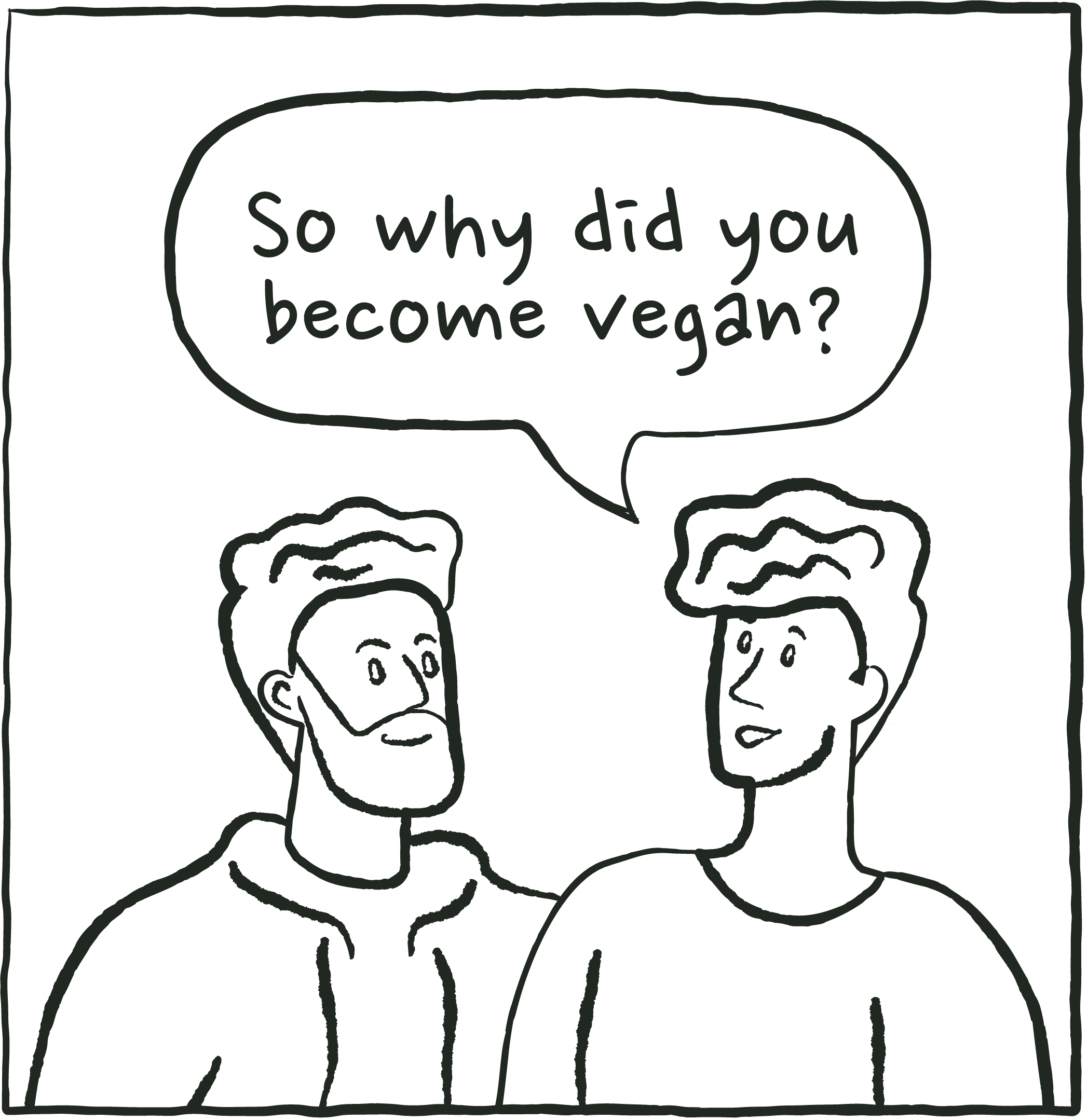
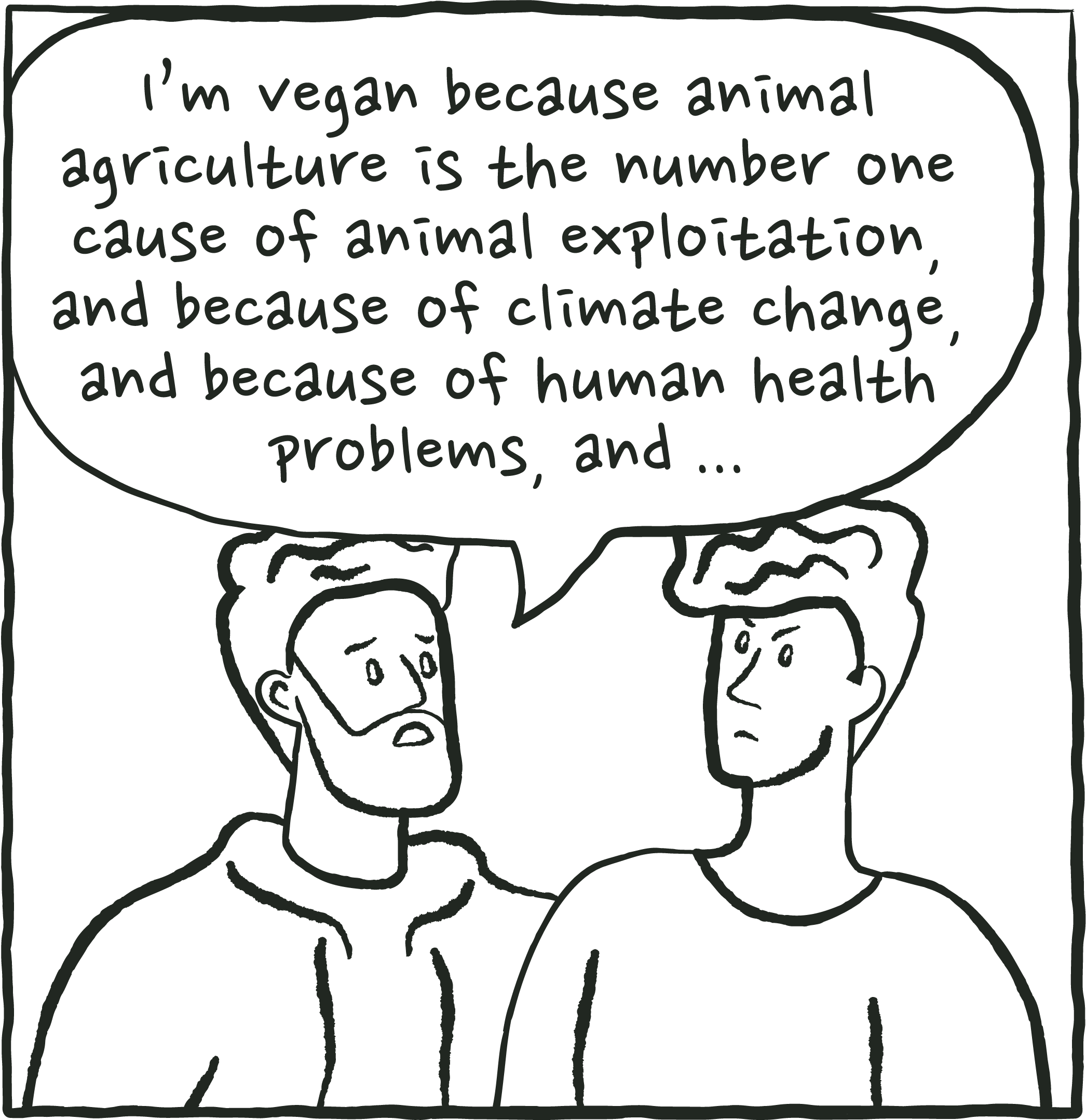
But it’s more effective to share your own story, which is actually what they asked for. This way, you invite them to look at the world through your eyes, which reduces the chances they’ll feel defensive against the information you share. Here’s an example:
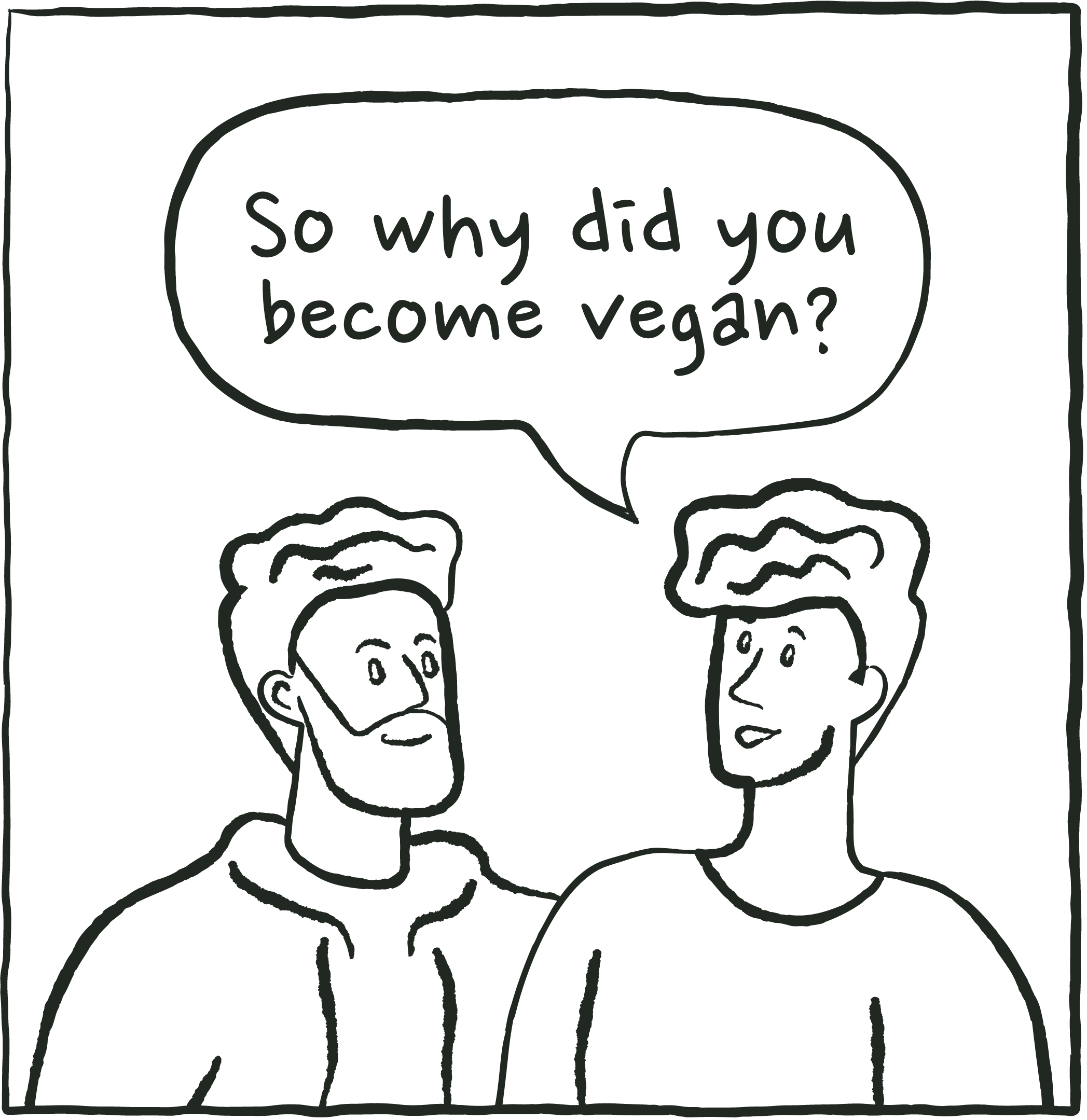
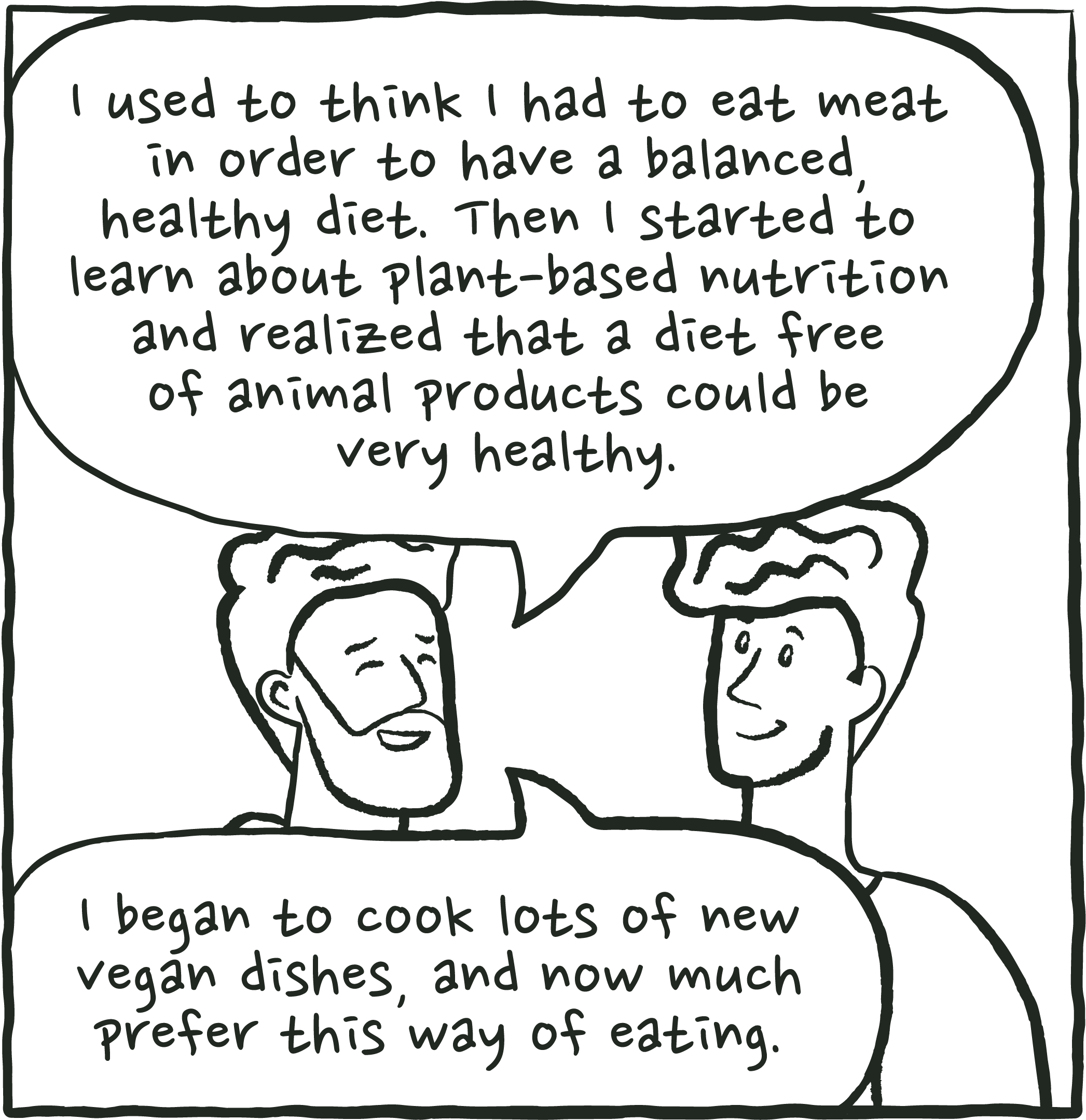

Focus on process over content
Whether you have just become vegan or have been having conversations about veganism for years, to make your discussions healthy and productive, it’s important to focus more on the process than on the content of our communication. All communication has these two parts. The content is what we’re communicating about, and the process is how we’re communicating.
The process matters more than the content, but most of us tend to focus more on the content than we do on the process.

Discuss rather than debate
One way we can choose to have a healthy process is to try to discuss rather than debate. When we debate a subject, our goal is to win. When we invite somebody into a debate with us, we’re inviting them to come up with all the reasons why their position is “right” and ours is “wrong.”
Rather than debate the issue of eating animals, discuss it. Simply share the truth of your experience and listen to theirs, with the intention of achieving mutual understanding.

Know when not to discuss veganism
Finally, it’s important to be able to judge when not to discuss veganism with friends and family. At times when people’s defenses are high and receptivity is low, it’s probably best to save the conversation for later.
For example, it’s often at mealtimes that people start asking us why we don’t eat animals, which is tricky because, as the author Carol J. Adams notes, people are usually more defensive about eating animals when they’re in the process of doing so. What you can say in that situation is “That’s a great question. I don’t want to dominate the dinner conversation right now, so let’s talk about this when we’re done eating.” Or “I’ve found that it’s easier to talk about this issue when people aren’t in the middle of eating.”